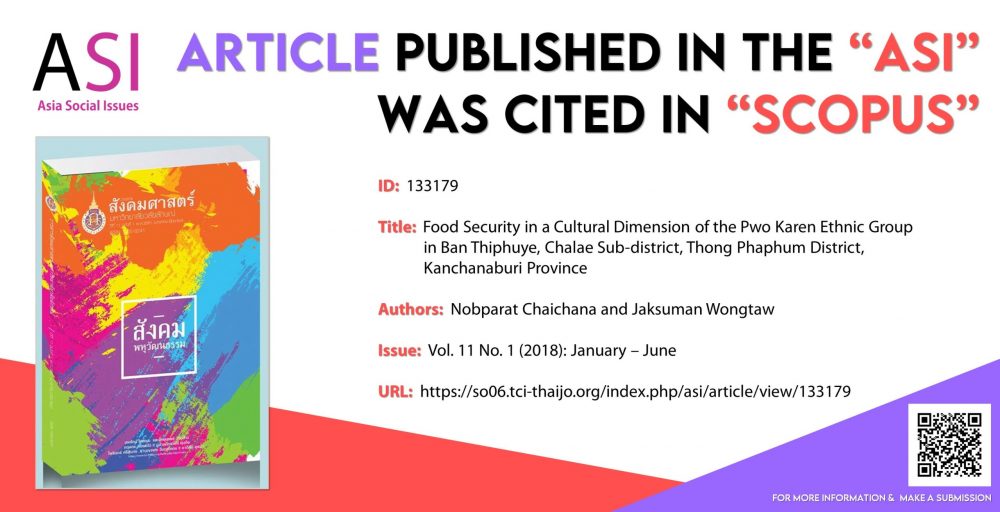
ABSTRACT:
The objective of this area-based study was to explore the way of life that affects food security in a cultural dimension of the Pwo Karen ethnic group in upland rice farming on diversities of local resources in Ban Thiphuye, Chalae Sub-district, Thong Pha Phum District, Kanchanaburi Province. This qualitative study employed applied anthropological research methods in which field data were collected through semi-structured in-depth interviews, and participant and non-participant observations. The study area was Ban Thuphuye, Village No. 3, Chalae Sub-district, Thong Pha Phum District, Kanchanaburi Province, Thailand.
The study found that in “Thiphuye” village in Chalae Sub-district of Thong Pha Phum District, Kanchanaburi Province, the Po (Pwo) Karen ethnic group is the main group of people living there in an agricultural society. They gather forest products, live simple lives, love peace and freedom; they are satisfied with what they have; and they adhere to a kinship system. They gather plants and vegetables from natural sources for consumption; live their lives depending on local resource bases and utilize wisdom inherited from their ancestors. They also adhere to rules and regulations that are intertwined with rituals and beliefs. They have practiced upland rice farming which is in line with the concept of sustainable agriculture or alternative agriculture that has long been passed down in the community. This practice gives them flexibility and adaptability to the changing situations that bring about food security. The diversity of fertile natural resources enables this ethnic group to have access to sufficient food. Their simple lifestyle, adaptability, dependency on local resource bases, inherited wisdoms, plantation ways are the major reasons that allow sustainability and diversity of the community.
.
𝗙𝗢𝗥 𝗠𝗢𝗥𝗘 𝗜𝗡𝗙𝗢𝗥𝗠𝗔𝗧𝗜𝗢𝗡 & 𝗠𝗔𝗞𝗘 𝗔 𝗦𝗨𝗕𝗠𝗜𝗦𝗦𝗜𝗢𝗡:


